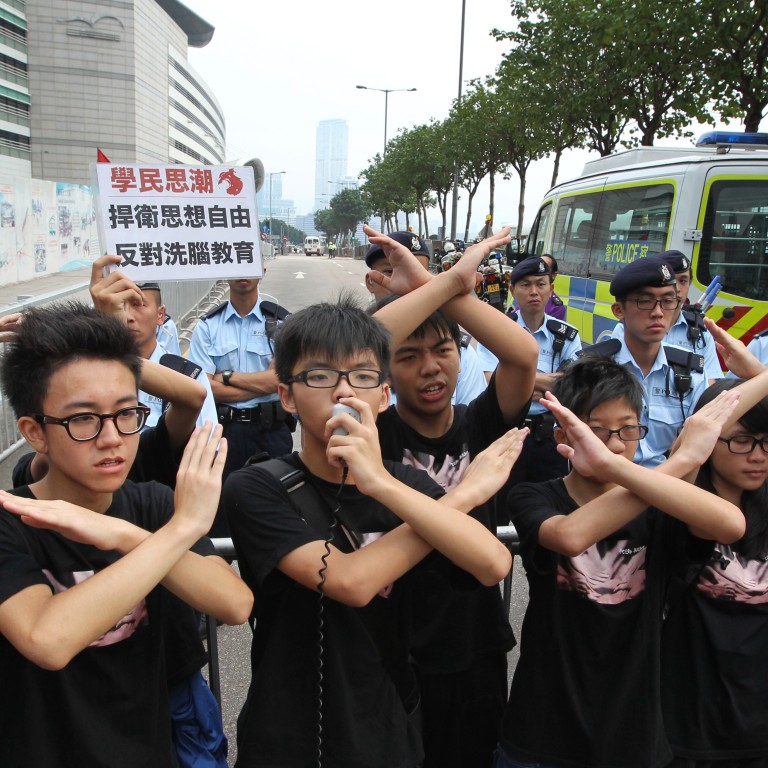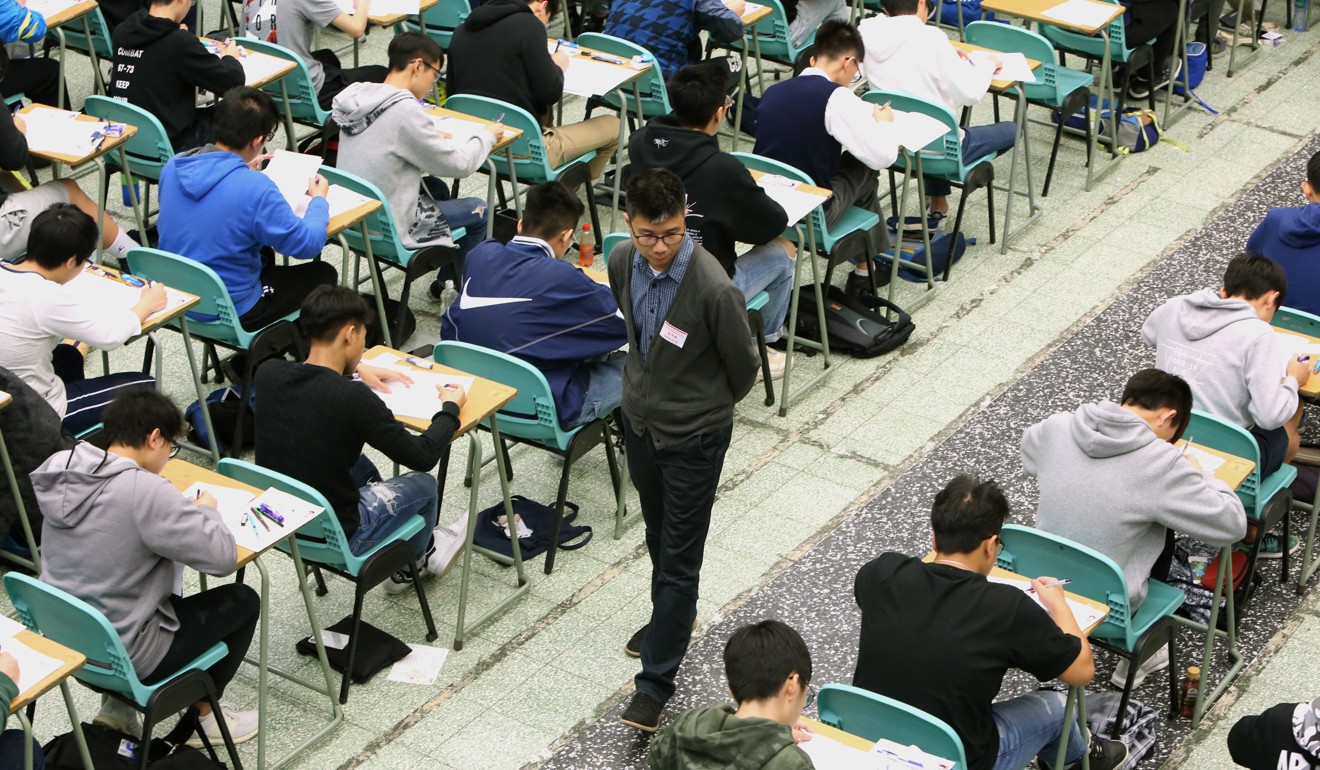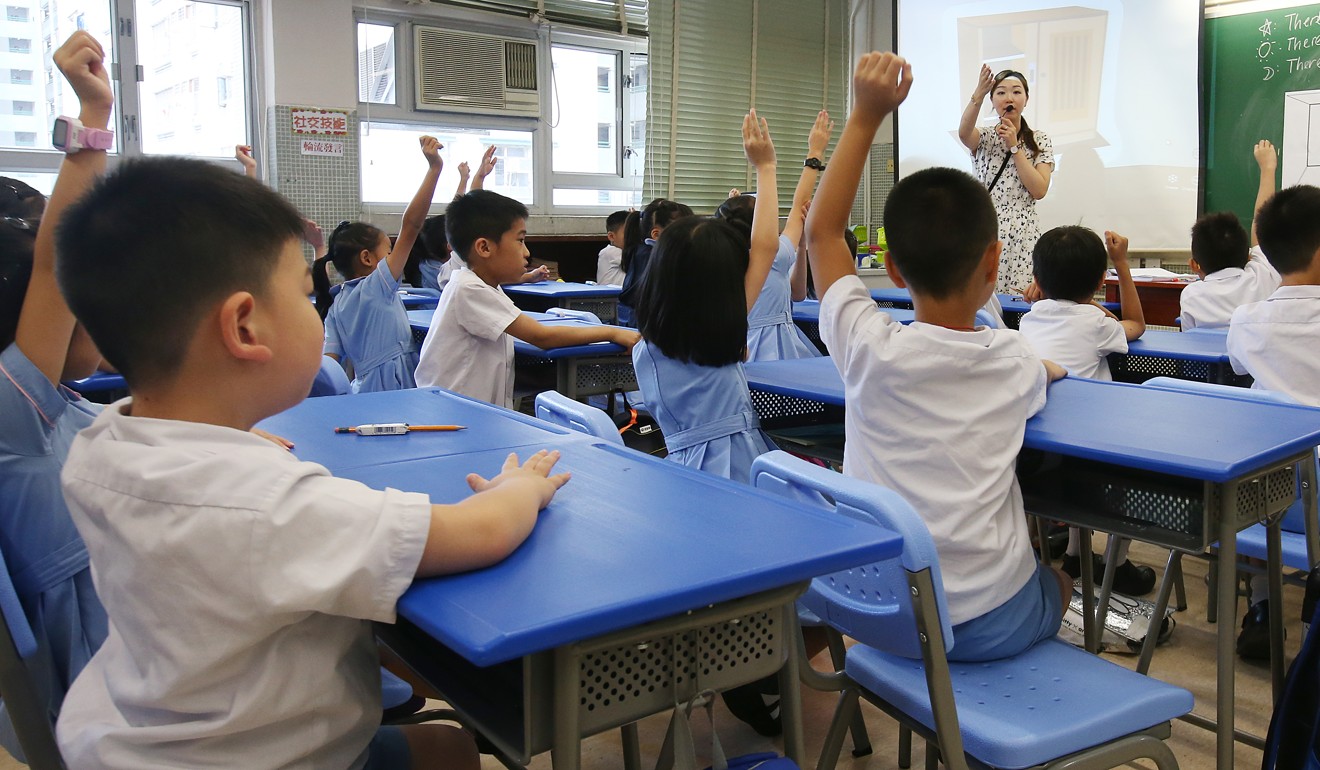
A cause of anti-government protests or an essential tool to teach the young to think for themselves? Row over liberal studies rumbles on
- Initiated by former chief executive Tung Chee-hwa, the city’s ex-leader is now one of the subject’s fiercest critics
- Pro-Beijing figures want it abolished, while others say the subject matter includes facts that cannot be erased
Liberal studies, the subject designed to cultivate critical thinking among high school students in Hong Kong, is again under fire as pro-Beijing figures ramp up attacks on the subject and demand it be overhauled.
A compulsory part of the curriculum for all upper secondary school pupils since 2009, its detractors blame it for causing the civil unrest that has rocked the city since June.
The subject aims to foster social awareness, independent thinking, and positive values among students through six modules, which include topics such as Hong Kong today, modern China, and globalisation.
But it has also been claimed that it has sowed the seeds of rebellion and anti-government sentiment among the younger generation.

As pro-Beijing supporters call for its abolition, pressure has been mounting on the Education Bureau to reform the curriculum.
All eyes are now on the government to see how it is going to tackle this latest battle in the fight between the pro-establishment and pro-democracy camps.
Pro-Beijing politicians rail against Hong Kong school subject that ‘politicises teens’
Why has the subject become the centre of the political storm?
Liberal studies was introduced in 1992 to counter the rote-learning approach prevalent in the city at the time. Initiated by the city’s first chief executive, Tung Chee-hwa, it became a compulsory subject in 2009 for the university entrance exam, now known as the Hong Kong Diploma of Secondary Education (DSE).
The pro-establishment camp has claimed the subject promotes pro-independence sentiment in Hong Kong, and influenced high-school students to take to the streets during the anti-national education campaign in 2012, and Occupy movement in 2014.
Ironically, Tung has now become one of the subject’s harshest critics and, as a vice-chairman of China’s top political advisory body, Tung said in July the subject was a failure and was partly to blame for the escalating violent protests.
Why has the Education Bureau flip-flopped over the vetting of this subject?
The government was reviewing the hotly debated subject last year amid reports it could be turned into an elective, pass-fail course.
However, in late June, a government curriculum task force said liberal studies should remain a mandatory subject in the DSE exam, drawing the ire of some pro-establishment politicians.
Last month, the bureau announced it would advise publishers on the content of liberal studies textbooks, and might require them to submit the learning materials for scrutiny in the long run.
It cited concerns among a section of the public that certain textbooks for the subject “have misled students and spread hatred and bias” amid the ongoing social unrest.
But the move has drawn opposition from some educators who fear it could lead to political censorship of the school curriculum.
These are the essential skills for people to be successful in any career of their choice
Who is for and who is against liberal studies?
It is not a secret that Beijing has been dismayed with liberal studies.
In 2017, China’s education chief Chen Baosheng said the rise of pro-independence sentiment in Hong Kong was “linked directly” to its education system. However, he then refrained from mentioning any subject in particular.
Last month, a commentary on Chinese state media People’s Daily criticised the teaching of liberal studies in Hong Kong, for packaging political propaganda as teaching material in classrooms.
However, youngsters and educators have given positive feedback on the subject.
A bureau survey in 2014 found 82 per cent of Form Six graduates agreed the subject enhanced their ability to think from various perspectives, while 80 per cent said it increased their social awareness.
Liberal studies teacher Kwan Chin-ki said students generally liked the subject
“They find this subject particularly useful in cultivating human relationships, increasing problem-solving abilities and building a team spirit,” he said. “These are the essential skills for people to be successful in any career of their choice.”
Kwan also rejected the allegation teachers imposed their own political bias on students, saying most educators had enough professionalism to maintain objectivity in school and avoid sharing their personal views with students.
Education officials defend liberal studies against former city leader’s criticism
What kind of content and outcome is the government comfortable with?
Since taking office in 2017, Chief Executive Carrie Lam Cheng Yuet-ngor has maintained that instilling patriotism in young Hongkongers is her priority.
Kwan argued the subject also strengthened students’ understanding of mainland China and their sense of nationalism.
“This subject also touches on the progress and development of China over the past decades, as well as citizens’ responsibilities and a sense of mission for their country,” he said.
An increasing number of young people are now going to the mainland for cultural exchanges and for work.
Kwan believed some content – such as the Occupy movement in 2014 and the question of Hong Kong’s democratisation – touched a nerve in a government sensitive about those issues.
“But they form a crucial part of Hong Kong’s modern history. These facts cannot be erased,” he said.

What solutions could be available for dealing with liberal studies?
A senior source told the Post the government was going to scrap the subject in junior classes, where it is only an optional choice now.
“The government has discouraged secondary schools from offering liberal studies from Form One to Form Three,” the source said.
“During the last school term, the Education Bureau even questioned various schools for their rationale behind offering this subject in the lower classes.”
Secretary for Education Kevin Yeung Yun-hung has not ruled out turning the subject into an elective in senior classes, despite the task force’s recommendation.
However, whether changes to the subject will ease the controversy surrounding it is anybody’s guess.

